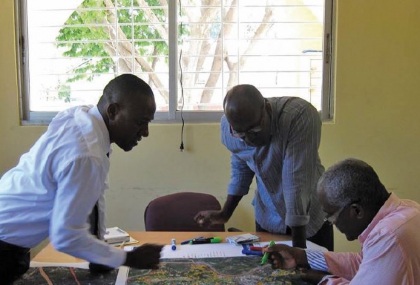
One of the important challenges FCM faces when working in fragile states is developing a shared understanding with national and local partners of what a functioning local government might look like. This not only requires understanding the aspirations and existing requirements of the national government with respect to decentralization and deconcentration –which often lacks in concrete guidance and leaves much to interpretation. The reality of decentralized cooperation also means that we’re assisting local partners that lack in experience, capacity and resources to make sense of these constraints and opportunities.
FCM’s program in Haiti approached that challenge in an innovative manner, with a tool that put local partners in Port-au-Prince and the Région des Palmes at the centre of the development process. The assessment tool which was developed and piloted with the support of FCM, helps to focus on the essential question: Which elements are key to improving the municipality as an institution? It provides the municipality with a core document to understand its situation, set priorities and communicate them with a range of stakeholders. The diagnostic tool, which can also be self-administered, aims to document the strengths of the local government, as well as the aspects it is seeking to improve.
Have a look at the case study, which explains how the tool was developed and how it’s being used. FCM is currently working on a complementary methodology to assist local partners in developing detailed operational development plans. Armed with these tools, local government in the country will be equipped to develop their own roadmap to build more inclusive and service-oriented institutions.
Strengthening communities in Haiti toolkit (EN)
Strengthening communities in Haiti toolkit (FR)
